Top Takeaways and Key Concepts
- Start growing your own food to build independence and reduce reliance on unstable supply chains.
- Support local farmers and markets to strengthen community food systems and reduce food transportation impact.
- Practice sustainability at home with composting, recycling, and reducing meat consumption.
- Use community gardens to grow fresh produce, share skills, and build local resilience.
- Prepare for disruptions by storing long-lasting foods and learning basic food preservation skills.
Summary of This Article
This article explores practical ways to improve personal and community food security in uncertain times. It encourages growing your own food, even in small spaces, and joining community gardens to boost local resilience. Supporting local farmers, practicing sustainability at home, and planning for future disruptions all help create a stronger, more self-sufficient lifestyle. By taking small steps, individuals can build independence and contribute to a more reliable and sustainable food system.
Short Video Version of this Article
Wow, can you believe it’s already time for another year? Life seems like a huge game of Jenga, doesn’t it? If you make even the smallest error, like failing to plant the tomatoes, everything might fall apart.
Please Note: This post may contain affiliate links. If you click one of them, we may receive a commission at no extra cost to you. As an Amazon Associate, I earn from qualifying purchases.
Everyone is talking about food security these days. It’s a major thing. But to be honest, not many people have a good plan. We need to be wise about how we live because the economy is changing all the time, the weather is changing, and the supply chain is going wild. It’s like a reality show, but with a lot less drama.
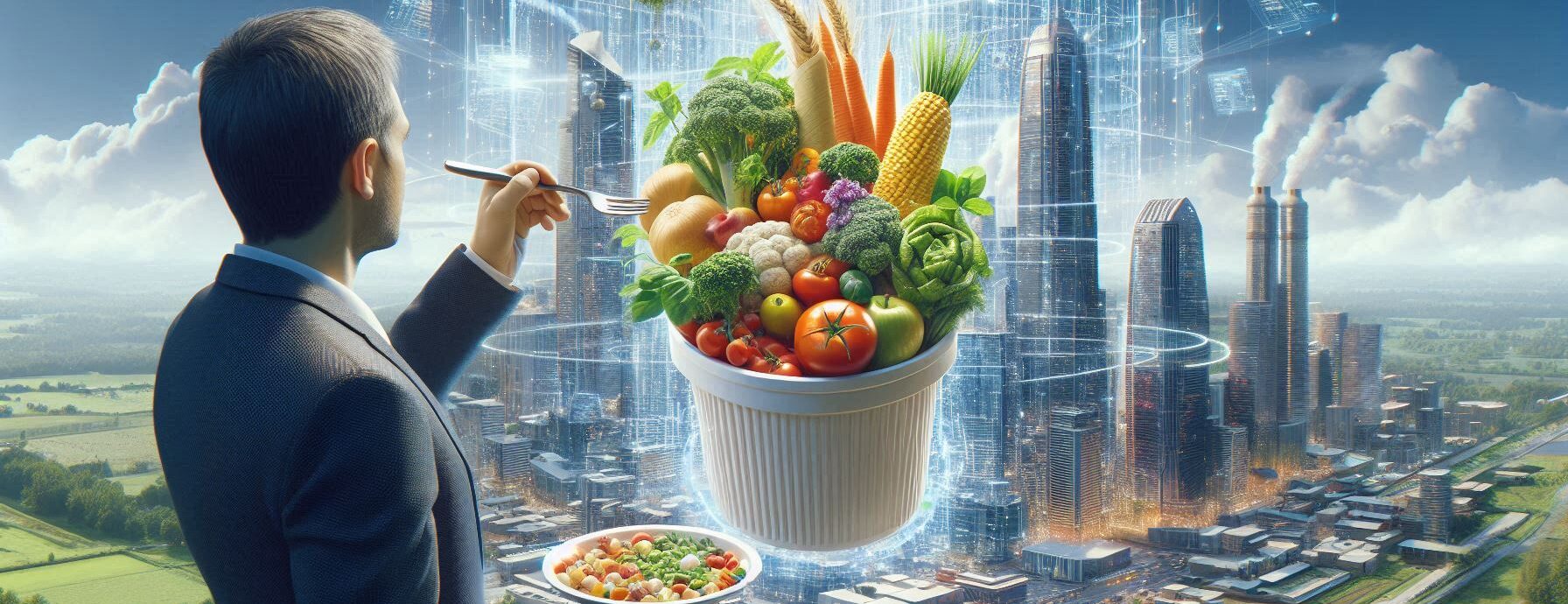
Time to be honest! We need to have a conversation about living in a way that is good for the environment. Small tweaks can make a big difference. You may contribute by growing your own vegetables or merely buying from local farms. It’s vital to know where our food comes from, isn’t it?
It’s very important to think forward. It’s possible that you should learn some new talents, like how to cultivate or can. They’re not only delightful, but they can also help us stay full.
Let’s take a deep breath. Think about what we can do. It’s about changing and figuring out how to be more independent. Life is full of surprises, but we can handle it. Even if the world feels shaky, we can construct something powerful together. Here’s to starting over! 🌱✨
Understanding Food Security
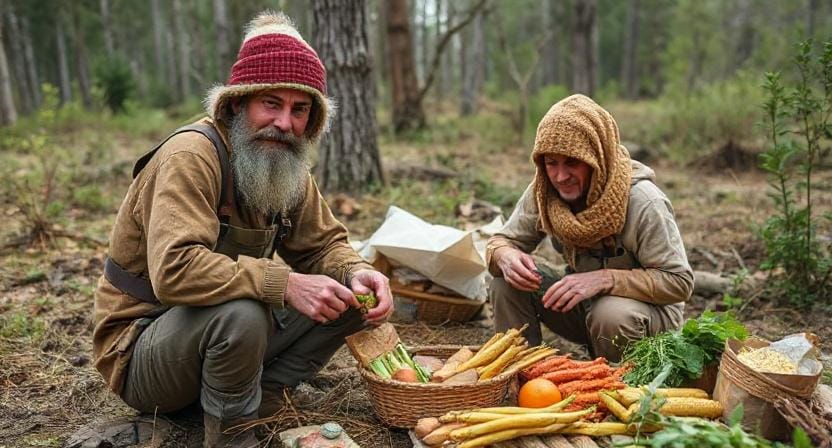
Let’s start by figuring out what food security really implies. In short, it’s about being able to get enough healthy, cheap food when you need it.
Doesn’t that sound easy? Not so quickly, though! Because of climate change, more people are living in areas where the weather is unpredictable. This has made many people question where their next meal will come from.
Isn’t it crazy? It’s not just farmers or grocery store owners that worry about food security. It affects all of us! Imagine this: you wake up and are ready to pour yourself a lovely bowl of your favorite cereal. But hold on! It’s not there. Droughts halfway around the world made it such that the factory ran out of ingredients. That tasty meal suddenly seems like a special treat.
A little spooky, right? We are all part of this huge food web. If one part fails, it can affect the complete system.
So, what can we do about it? A lot of things, in fact! We can start by growing some of our own food. Even if it’s only a small herb garden on your windowsill. Doesn’t fresh basil sound good?
Another fantastic way is to help farmers in your area. They typically grow food that is better for the environment and the people who live there. You can also meet the people that grow your food. It makes things seem more real.
It’s also important to share what you know. You might be able to learn how to can fruits and vegetables with a friend who knows how to do it. There are community gardens all over the place, and they’re a great way to get to know your neighbors.
Knowing where our food comes from makes us appreciate it more. Every apple and tomato has a story to tell. Let’s try to make those stories good ones. Small steps can have a tremendous effect. We can help each other out.
Growing Your Own Food
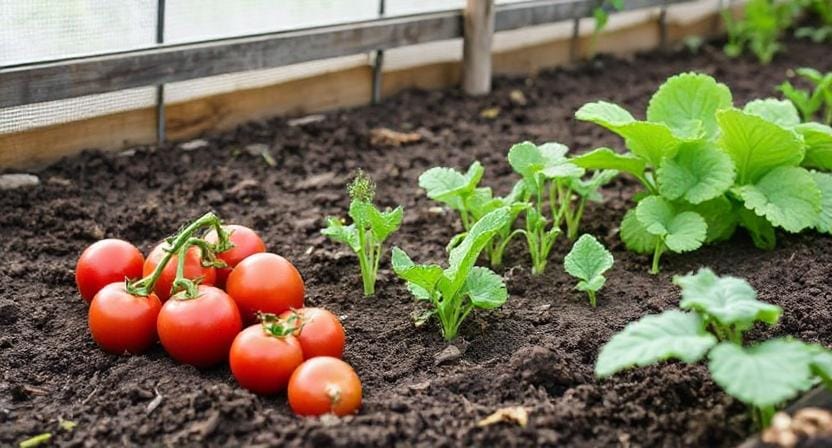
Let’s talk gardening! If you’ve ever thought about starting your own vegetable garden but were too intimidated by the idea of turning your backyard into a mini-farm, now is the time to take action.
Seriously! There’s nothing quite like plucking fresh tomatoes off the vine or snipping basil right before tossing it into your pasta sauce.
Not much space? No problem! Container gardening is super popular now. You can grow little herbs right on your windowsill. Basil, mint, maybe even some tiny tomatoes. How cool is that?
Vertical gardens are also a great idea. They’re like little green walls that can fit anywhere. You just stack some pots and voilà! You’ve got your own mini garden in a small corner.
Eating food you’ve grown yourself is amazing. It’s like giving Mother Nature a high-five. You watered it, watched it grow, and then—bam—you get to enjoy it.
Homegrown veggies taste so much better than store-bought. You know that vine-ripened tomato? Yum! Imagine making a salad with your very own veggies. Your friends will be impressed when you tell them all about the bugs you fought off or the weeds you pulled. “Oh, this zucchini? I grew it myself!”
It’s all about those little victories. Plus, gardening can be relaxing, even after a long day. Just you, some dirt, and a bit of sunshine. Sounds nice, right? You might just find that you love it. Who knew growing food could be so rewarding?
Community Gardens: A Collective Effort
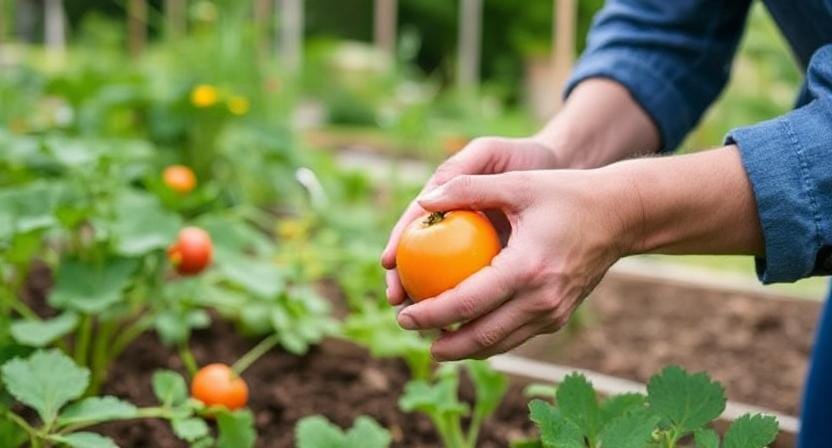
Let’s take a look at how community gardens fit into all of this. These great places let neighbors work together to grow food, which is like assembling an Avengers team, but instead of fighting bad guys, you’re fighting hunger!
Community gardens are great! They help neighbors get together and exchange food that is fresh. It’s like a small green oasis in the middle of a hectic city. This is a terrific technique to cultivate fruits and vegetables for folks who don’t have a yard.
It’s a lot of joy to work in a garden with other people. You’re planting, digging, and laughing together. Friendships grow like flowers! It’s great to meet new people while doing something positive for everyone.
Check out the community garden if you live near one! If not, consider starting one. Isn’t it exciting? Think about getting together with your neighbors. You may get some pals together and talk about it over coffee. You may be the superhero who delivers new vegetables to your street!
When you meet together, don’t forget the munchies. Snacks really do make things better. Picture everyone eating snacks while they talk about how to plant together. It’s hard to say no to chips or fruit while you’re coming up with ideas.
What do you think? Are you ready to go to work and make your town even better? Let’s make some nice vibes together!
Sustainable Practices at Home
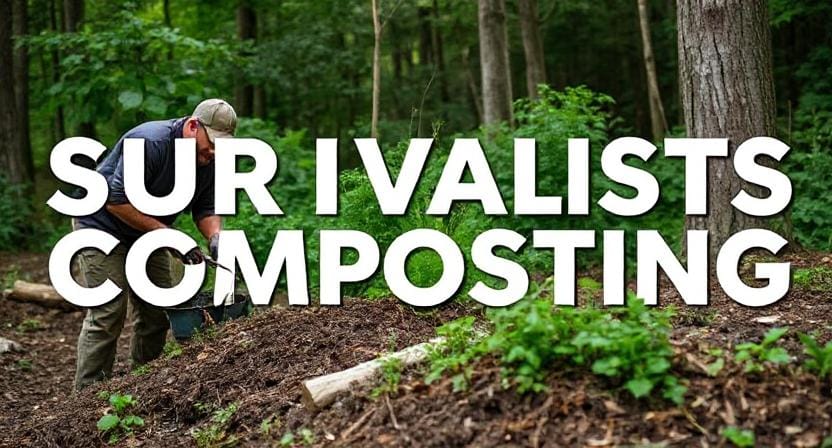
Let’s talk about some things we can do every day to help reduce waste and make sure everyone has enough food. First of all, composting! At first, it might sound horrible (who likes decaying vegetables in their kitchen?), but trust me, it works great!
Composting is so cool! It’s like magic for the things you throw away in the kitchen. You know, the stuff we generally toss out, like eggshells, banana peels, and coffee grounds? You can make rich soil for your plants out of them instead of throwing them away. Think about giving those scraps a second shot!
Composting is good for the Earth as well. The air stays cleaner because less material ends up in landfills. Also, there is less greenhouse gas in the air. That’s a win-win situation. Think about it. You’re helping the Earth and making your garden happy. It feels amazing, right?
Let’s speak about what to eat now. Another method to help is to eat less meat. You could try Meatless Mondays, maybe. One day a week can make a significant difference. It’s pretty astonishing how much space and water are utilized to raise animals instead of cultivating vegetables. We need fewer resources when we eat tasty plants.
It’s fun to try out different dishes. You might find foods you never knew you liked! Think of cooking a huge salad full of bright veggies or a wonderful veggie stir-fry. Friends might want to try it too!
It can be hard to think about all of this, but taking modest steps can help. We’re all in this together. Small changes add up. You help out every time you compost or attempt a new recipe without meat. And who could say no to a tasty vegetarian burger?
Supporting Local Farmers
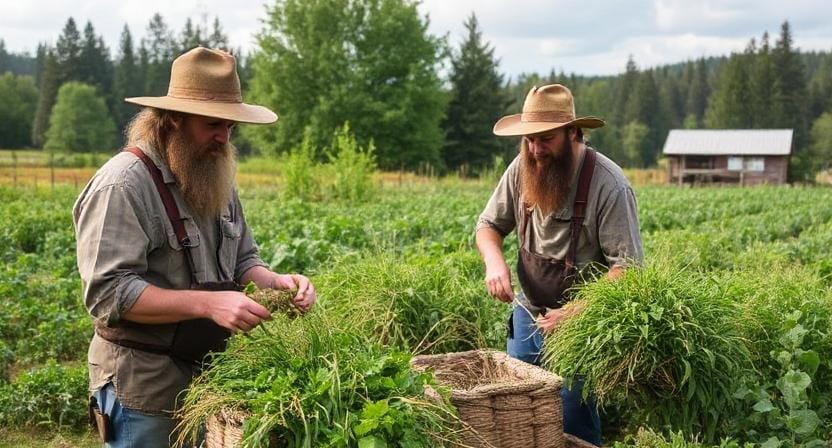
Supporting local farmers is another fantastic strategy for improving food security in our communities—and it comes with delicious benefits too!
When we buy locally grown produce from farmers’ markets or community-supported agriculture (CSA) programs, we not only help boost our local economy but also reduce transportation-related carbon emissions associated with shipping foods across long distances.
There’s something really neat about knowing where your food comes from. When you chat with farmers at the market, it’s like getting a peek into their world. They can tell you how they grow their veggies and what’s fresh right now. This makes picking food a whole lot easier and often leads to healthier choices.
Imagine asking a farmer about that bright orange carrot or those cute little tomatoes. They’ll share stories about their plants and how they care for them. You might even discover cool seasonal goodies you never thought to try!
So, grab those reusable bags from under the sink (you know they’re in there somewhere). Dust ‘em off and head to your local market this weekend. It’s such a fun adventure! You’ll find fresh produce that’s way better than the sad, wilted stuff hiding in your fridge. Honestly, no one needs those sad greens.
With fresh kale, you could whip up a delicious salad or even a veggie smoothie. How about that? Just picture it: a colorful plate filled with crunchy veggies, all picked right from the earth. So much better than those old greens!
And while you’re there, maybe pick up something you’ve never tried before. Pomegranates or even some unusual squash? You’ll feel like a food explorer! Trust me, it makes cooking way more exciting and you’ll impress your friends with new flavors.
Preparing for Future Disruptions
But the most important thing to remember is that preparedness is the most crucial thing. We have to accept that things will go wrong that we didn’t predict, such natural disasters or pandemics that damage supply chains again (let’s hope not!).
It’s really helpful to have some backup plans, especially when things get hard. Think about a moment when you couldn’t find your favorite treats at the store. That’s when you need to stock up on meals that don’t go bad. Think about grains, beans, and pasta. They last a long time and can be the main ingredient in a lot of tasty recipes.
It’s also important to have things like water filters and medicine on hand. When things go crazy, you don’t want to be running about. It’s better to stay cool and be ready. Believe me, no one likes to buy things in a hurry while everyone else is going wild!
It’s not only you that has to deal with food security. We all need to work together. We may be creative when we raise and share food. Let’s talk about community gardens or local exchanges. Every little bit counts. We can make sure that everyone has adequate good food and supplies if we work together.
We can worry less about tomorrow’s problems if we choose sustainable solutions today. Think of communities that are doing well together, where everyone has everything they need. Doesn’t it sound good?
Improving food security starts with small, practical steps at home and in your community. Growing your own food, supporting local farmers, reducing waste, and learning preservation skills build independence and resilience. These simple actions strengthen local food systems and prepare you for disruptions while promoting a more sustainable lifestyle.
Frequently Asked Questions
What is food security and why does it matter?
Food security means having reliable access to a safe, nutritious, and affordable food supply. It matters because economic instability, climate change, and supply chain disruptions can impact availability, making self-reliance more important than ever.
How can I start growing my own food with limited space?
You can grow food in small spaces using container gardening, vertical planters, or window herb boxes. Start with easy crops like lettuce, tomatoes, or basil to build confidence and gain experience.
What are the benefits of supporting local farmers?
Buying from local farmers keeps money in your community, reduces fuel emissions from long-distance shipping, and provides fresher, nutrient-rich food for your family.
How does composting improve food security?
Composting reduces household waste while creating nutrient-rich soil for growing food. It improves garden health naturally and cuts reliance on commercial fertilizers, saving money and resources.
What is a community garden and how do I join one?
A community garden is a shared space where people grow food together. To join, search for local gardens in your area or start one with neighbors, schools, or churches to share knowledge and fresh produce.
Why should I store long-lasting foods?
Storing long-lasting foods like rice, beans, oats, and pasta ensures your family has meals during emergencies, supply shortages, or unexpected financial hardship.
What basic food preservation skills should I learn?
Learning canning, dehydrating, and freezing food helps prevent waste and allows you to store seasonal produce for long-term use, increasing your food independence year-round.
Suggested Resources:
Local Harvest
https://www.localharvest.org
Food Security Information Network
https://www.fsinplatform.org
USDA Economic Research Service
https://wwwers.usda.gov/topics/food-nutrition-assistance/food-security-in-the-us

Kevin Collier is a seasoned outdoor enthusiast and writer for Trekbug.com, specializing in outdoor adventures, survival strategies, and prepping insights. With a deep love for nature and a commitment to self-sufficiency, Kevin empowers readers to embrace the wilderness confidently. He shares valuable tips, practical techniques, and inspiring stories, helping both novice and experienced adventurers develop essential skills for surviving and thriving in the great outdoors.





